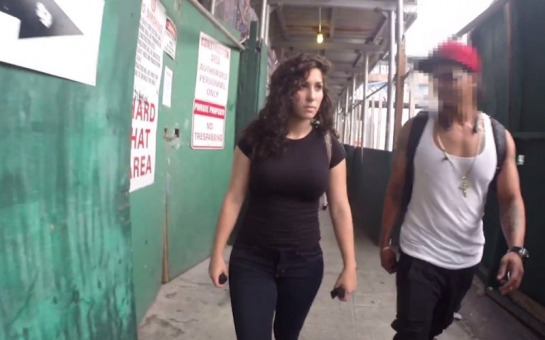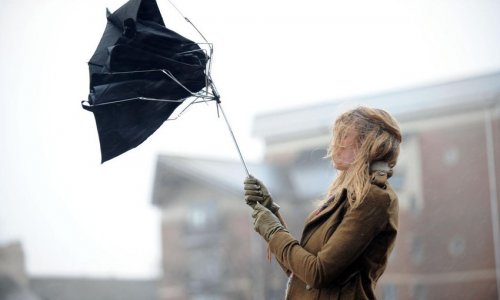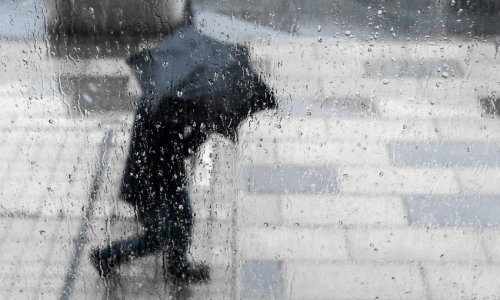In a two-minute video that went viral on Tuesday, aspiring actress Shoshana B. Roberts is relentlessly catcalled—more than 100 times, the video claims—in a ten-hour walk through New York City, from SoHo to Harlem. Men greet her in passing (“How you doing today?”); make unsolicited, boorish comments about her looks (“Sexy! Damn!”); and shout after her when she doesn’t engage (“Someone’s acknowledging you for being beautiful! You should say thank you more!”).The PSA for anti-harassment organization Hollaback provoked outrage and panic in the mainstream media: hundreds of stories, globally, with aghast headlines about a woman enduring constant unwanted attention and glaring misogyny, ensuring that the video racked up over a million views in one day alone. The Los Angeles Times lamented “the everyday sexism of American streets,” Business Insider stressed the “prevalence of street harassment” illustrated in this “disturbing video,” and Buzzfeed deemed it “upsetting.” Across the pond, The Daily Mirror called it “worrying,” and BBC News linked to “the video that shows what street harassment is like.”Hollaback worked with Rob Bliss, creative director of a viral video marketing agency, to film Roberts walking around in jeans and a t-shirt, holding two microphones to pick up the ambient harassment from bystanders. Bliss walked in front of Roberts with a tiny GoPro camera hidden in the back of his shirt. “I didn’t have any contact with any of these guys,” he told Time. “The whole idea was to be a stone wall and just let everyone else bounce off us.”Indeed the video is discomfiting; ten hours distilled into two minutes, in which men intrude upon her walk with flattery, ugly comments, and aggressive advances. In a press release accompanying the video, Roberts said that such behavior is commonplace on New York streets—and in her own life. “I’m harassed when I smile and when I don’t. I’m harassed by white men, black men, latino men. Not a day goes by when I don’t experience this.”It’s an issue that has long been a key agenda item for feminist activists. Indeed, Hollaback has been attempting to “end street harassment” since 2011. In 2012, Huffington Post was outlining to readers “10 Things You Can Do To Stop Street Harassment.” Stop Street Harassment, a nonprofit organization “dedicated to documenting and ending gender-based street harassment worldwide,” formed in 2013 and its founder, Holly Kearl, is the author of a book on the subject (Stop Street Harassment: Making Public Places Safe and Welcoming for Women). And the idea of a hidden-camera video showing real-life examples of the indignities women face is hardly an original one. In 2012, Belgian filmmaker Sofie Peeters catalogued the comments and harassment she endured at the hands of men in Brussels, provoking an intense debate in French-language media.As it did with Peeter’s film, the Bliss-Hollaback collaboration has produced a furious backlash. But while the organization’s stated goal of ending catcalling and boorish male behavior on city streets is an admirable one, how will the viewer’s donation—solicited at the end of the video—help solve what would appear to be an intractable problem? What should the protocol be for engaging people on the street who offer unsolicited “compliments?” Should we avoid eye contact entirely? (The video states that the 100 plus instances of catcalling “doesn’t include the countless winks, whistles, etc.”)So what is to be done? According to Hollaback’s mission statement, the group is interested in modifying the law to punish offenders (and raising significant First Amendment concerns). Because comments such as those documented in their latest video, they explain, are the “most pervasive forms of gender-based violence and one of the least legislated against.” The group hopes to “inspire legislators, the police, and other authorities to take this issue seriously—to approach it with sensitivity, and to create policies that make everyone feel safe” because catcalling is a “gateway crime” that ultimately “makes gender-based violence OK.”Hollaback is right to shine a light on these creepy comments from creepy strangers. We should be offended. Such behavior should be considered socially unacceptable. But let’s not get the law involved. Because while calling a passerby “sexy” may be uncouth, it shouldn't be illegal.(thedailybeast.com)Bakudaily.Az
Street Harassment Shouldn’t Be a Crime - VIDEO
Society
13:30 | 30.10.2014

Street Harassment Shouldn’t Be a Crime - VIDEO
A video that captures the relentless misogyny of boorish New York men has gone viral but that doesn’t mean the cops should get involved.
Follow us !










